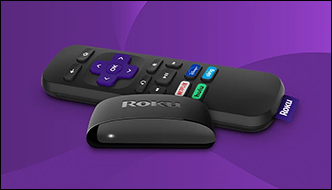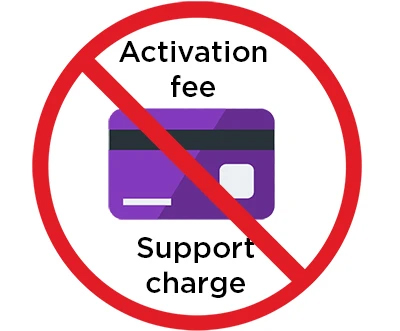
Do you own a Roku TV streaming device? Below is some useful information on protecting yourself against potential scams.
Thanks to SCSH resident Suzy Kerekes for suggesting this article. Courtesy of Roku: https://support.roku.com/article/208757068
How do I protect myself from activation and technical support scams?

Roku does not require an activation fee, registration fee, or charge for support of any kind.
Background
Technical support scams are an unfortunate industry-wide problem, where criminals use various forms of deception to extract personal information and gain financial favor from unsuspecting victims. Typical scams aimed at Roku users falsely claim to be affiliated with the company in a malicious effort to get you to pay for services that Roku offers for free, such as Roku device activation and technical support. This article explains how these activation and technical support scams work, how you can protect yourself from them, and what to do if you have fallen victim to such a scam.
- How do activation and support scams work?
- How did I end up on a phony website?
- How can I tell if a website is fake?
- How do I protect myself from a scam?
- What should I do if I gave contact information to a scammer, or paid for support?
- What should I do if I need more help?
How do activation and support scams work?
Scammers use misleading tactics and bogus websites to try and gain access to your sensitive personal and financial information. Their official-looking sites may include Roku-branded images, flashy marketing pages, and instructional articles, all with the intent of convincing you that you are visiting an actual Roku website. Some attack right away, requesting your personal information with a friendly pop-up chat box, while others take a passive approach and let you find and enter an activation code on your own before getting you to take action when your code is rejected.
Some fraudulent sites request an email address or phone number where they can contact you directly, while others present a "support phone number" and ask you to call them. When you do talk to someone posing as a "support agent", they can often be firm and forceful, and sometimes even rude and vulgar. Regardless of their methods and manners, the ultimate goal of a scammer is tricking you into giving out personal information and paying for services that Roku offers for free.
How did I end up on a phony website?
Unfortunately, criminals are intelligent and go to great lengths to get their websites to rank well on internet search engines like Google and Bing. Some even pay for an advertisement that appears at the top of the first page of search results. If you visited a phony website recently, you likely got there after browsing a list of internet search results and opening what appeared to be a reputable link. Search phrases such as "roku com link", "roku link", and "roku activation" are a few of the more common terms fraudulent sites try to rank for, but in general, any internet search for Roku support is vulnerable to attack. Always be vigilant and suspect a fraudulent site anytime you have doubt.
How can I tell if a website is fake?
When you are not sure whether a website you are visiting is legitimate or fake, look at the internet web address (or URL) located in the address bar at the top of your web browser (e.g., Chrome, Firefox, etc.). All official Roku websites have a URL on a roku.com domain. You may see a longer address like support.roku.com, my.roku.com, community.roku.com, blog.roku.com, or channelstore.roku.com, but any official Roku website always ends with roku.com. If a website offers technical support for Roku but has a different domain (even if only slightly different) you should assume the website is fake and use it with extreme caution, if you choose to use it at all.
If you examine a suspicious site more closely, you may find disclaimers that explicitly state they are an independent company not affiliated with Roku, do not charge for activation (often despite the contrary), and only offer Roku support services. They do this to try and protect themselves legally but be careful as they may still try and take your money for services that Roku offers for free.
How do I protect myself from a scam?
With a variety of opportunistic and fraudulent sites out there today and new ones popping up often, it is important to understand the details of different types of scams and what you can do to protect yourself.
- Scams requiring a fee to activate a Roku device: If a website reports that your activation code failed, do not call their "support phone number" for help. They are only looking to charge your credit card for activation which is not necessary. Remember, activating your Roku device is always free, and always has been (i.e., Roku has never charged for device activation). If you need help, review the steps required to complete the device activation process.
- Scams charging to create a Roku account: If you speak on the phone with someone posing as a "Roku support agent" and they want to charge your credit card to create a Roku account or to register your player, hang up! There is never a charge to create a Roku account. When you set up and activate your Roku device, you are prompted to create your free account, or if you prefer, you can create your Roku account ahead of time by visiting roku.com/signup.
- Scams asking for money to help with setup: There is no fee to set up your Roku device. The Roku support site contains a number of instructional videos and articles to assist you in setting up your Roku device(s) for free, and owners of eligible products can contact an official Roku support agent as well.
- Scams selling service or support subscriptions: Do not pay for a monthly or annual subscription with the promise of help with wireless network issues, remote control problems, or other technical issues. You will likely never get to use your subscription as most scammers pack up and close shop before you get the assistance you need. For help with these types of technical issues, visit the Roku support site, or connect with other customers on the Roku Community.
- Scams taking control of your Roku device: Beware of scammers who try and activate your Roku device using their own Roku account. If successful, they can disable your Roku device at any time and demand credit card payment for reactivation. Always activate your Roku device yourself using your own valid email address and a strong, secure password.
- Scams seeking access to your computer: Do not grant remote access to your computer even if a scammer claims to be able to use it to activate your Roku device or resolve a technical issue. This tactic is often used to install malicious software and access it to steal your personal and financial information. Some scammers even ask you to pay for the software with a promise that it prevents viruses and helps your computer run faster.
- Scams selling access to channel bundles or lifetime programming: Premium channels can be installed and subscribed to directly from your Roku device, and you can enter existing subscription details for other paid channels, but Roku does not sell lifetime subscriptions. Be aware if someone tries to sell you this service.
Beyond understanding some of the more common scams out there, there are a number of general practices you should employ to best protect yourself.
- When you are trying to activate your Roku device or seeking technical assistance, make sure you are only visiting official Roku websites. As explained in the previous section, all official Roku websites end with roku.com. Sites that end in another domain (no matter how similar) are not affiliated with Roku and should be avoided.
- Never provide your social security number, date of birth, or Roku account password to anyone when trying to get help with your Roku device. Roku support agents will never ask for this information.
- Do not grant access to your computer, provide computer passwords, or agree to install third-party software when seeking help with your Roku device. You will never be asked by a Roku support agent to provide passwords or install software on your computer.
What should I do if I gave contact information to a scammer or paid for support?
If you believe you are the victim of an activation or technical support scam from another company, please take the following actions:
- Check your bank and credit card statements for any associated charges.
- Call your credit card company or bank and ask to have any associated charges reversed.
- Remove any software that a scammer may have installed on your computer and change any passwords for programs on your computer that may have been accessed during the scam.
- Change the password on your Roku account.
- Change the password on your email account if you may have shared your email credentials with a scammer.
- Visit the Federal Trade Commission website and file a complaint about the experience.
IMPORTANT: If you believe a scammer may have activated your Roku device on their Roku account, you can see what email address was used for activation by visiting Settings > System > About on your Roku device. If you do not recognize the email address, you should factory reset your Roku device and then activate it again using your own email address and Roku account.
What should I do if I need more help?
If you believe that you have interacted with a fraudulent website or fallen victim to an activation or technical support scam, please tell us about your experience, and if desired, request follow up from a Roku customer service agent.
Related articles
